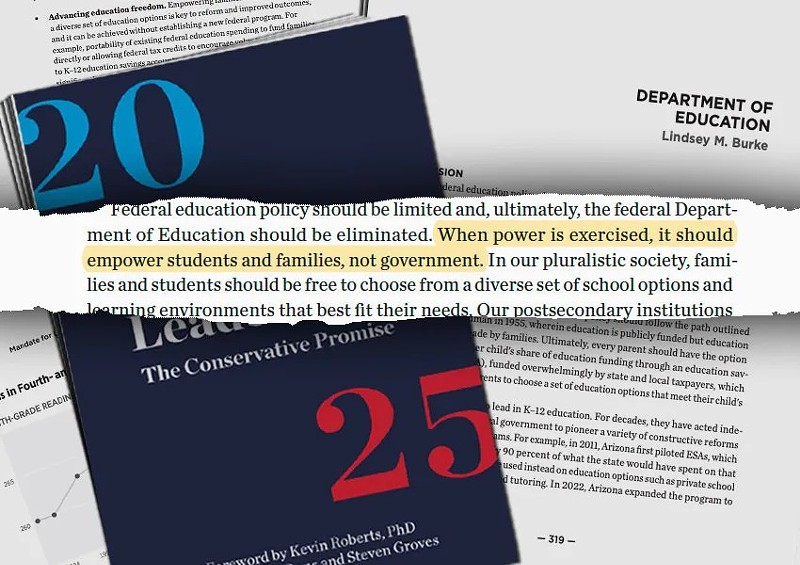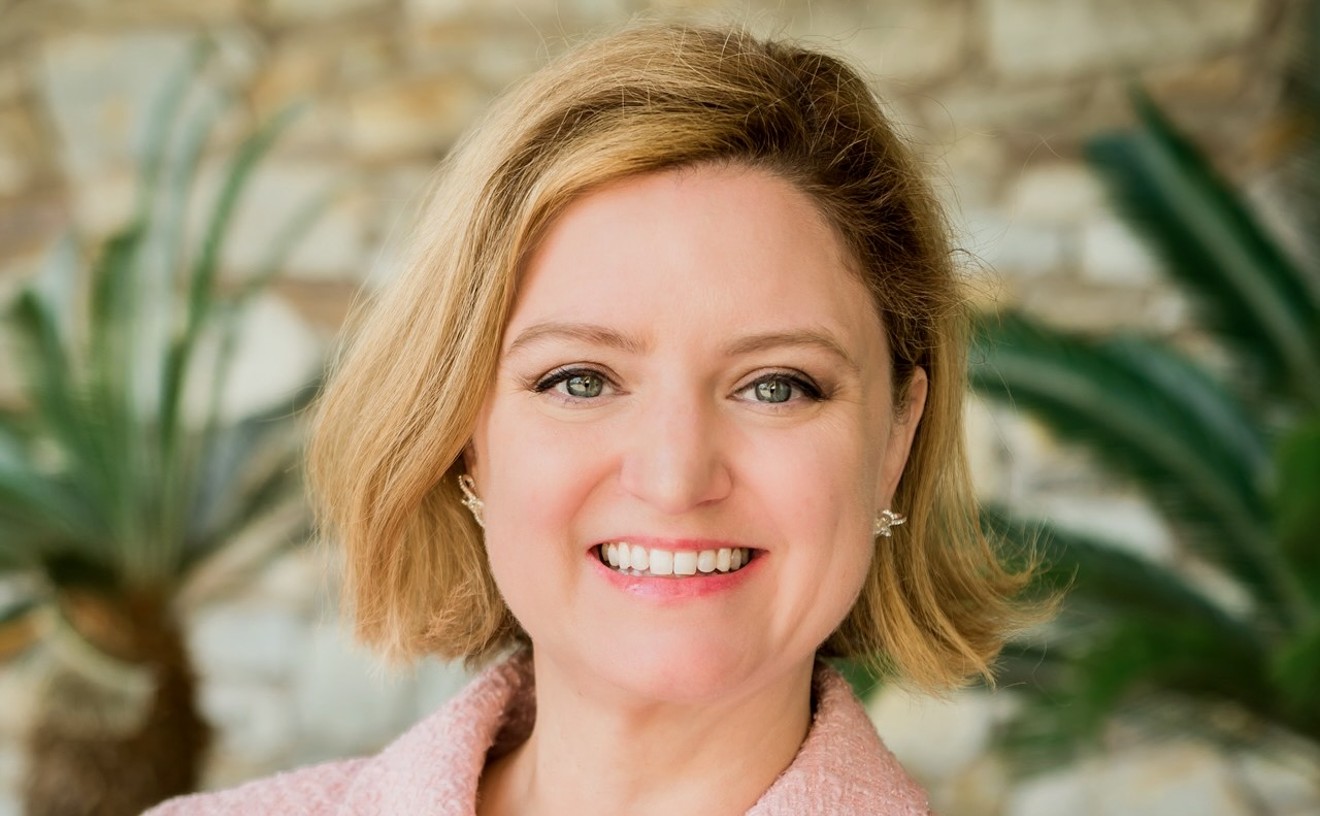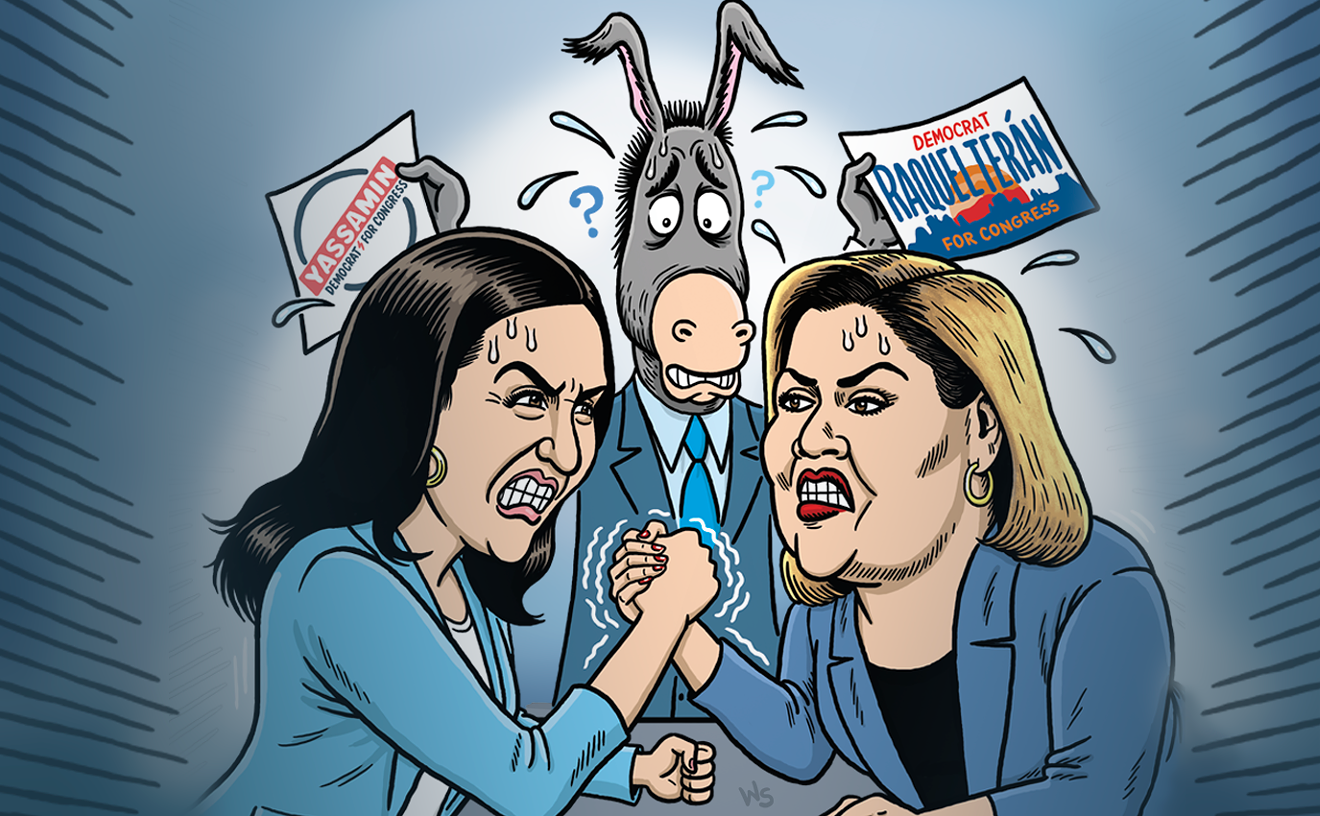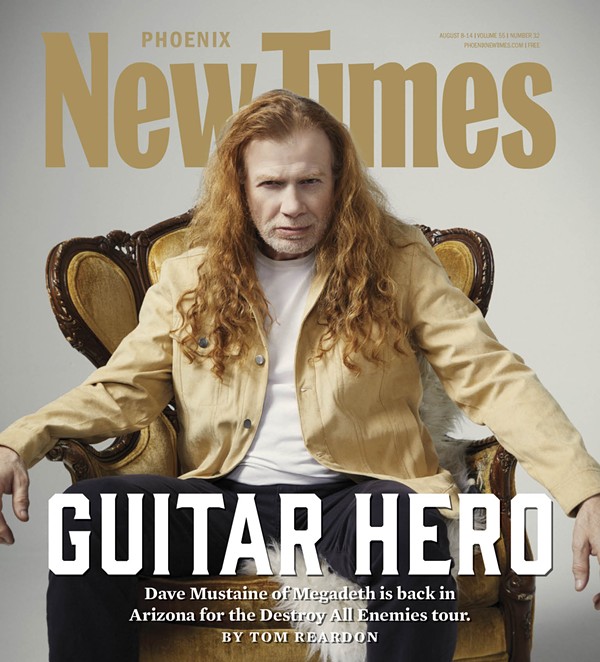
Project 2025, a contentious policy blueprint for the next Republican presidency, seeks to dramatically concentrate power in the White House while fundamentally changing how the federal government operates on nearly every front.
And when it comes to overhauling public education, the sweeping right-wing manifesto borrows heavily from Arizona’s playbook.
The roughly 900-page “Mandate for Leadership”— crafted by think tank the Heritage Foundation and other conservative heavyweights — lays out an aggressive roadmap for dismantling the federal Department of Education, rethinking funding for low-income students and those with disabilities, and broadly diverting public school dollars to less-regulated alternatives like private schools and homeschooling.
Promoting universal school choice as “a goal all conservatives and conservative Presidents must pursue,” it argues that “every parent should have the option to direct his or her child’s share of education funding through an education savings account (ESA), funded overwhelmingly by state and local taxpayers.”
That’s precisely how school vouchers work in Arizona, a longtime darling of the school choice movement and the first in the nation to offer universal voucher eligibility. Heritage education policy expert Lindsey Burke, who authored Project 2025’s education section, references Arizona as a school choice pioneer almost immediately.
Burke also advocates a change to the Individuals with Disabilities Education Act that would partially redirect IDEA funding to families instead of schools, citing “the way in which parents use education savings accounts in states such as Arizona and Florida.” And she promotes a funding model in which donors receive tax credits in exchange for contributions to nonprofits that provide private school scholarships, much like Arizona’s school tuition organizations, or STOs.
Burke and others from the Heritage Foundation, which declined an interview with AZCIR, use conservative buzzwords like “freedom” and “choice” to sell their vision of a new educational landscape that empowers parents to select a “set of education options that meet their child's unique needs.” But experts in education policy and constitutional law suspect a much different endgame: setting public schools up to fail by stripping their funding while concentrating higher-need, harder-to-educate kids there.
“The implications for students and public schools and the communities that rely on them are disastrous,” said Jessica Levin, litigation director at the Education Law Center, a nonprofit that advocates for public education. “And Arizona, unfortunately, is Exhibit A.”
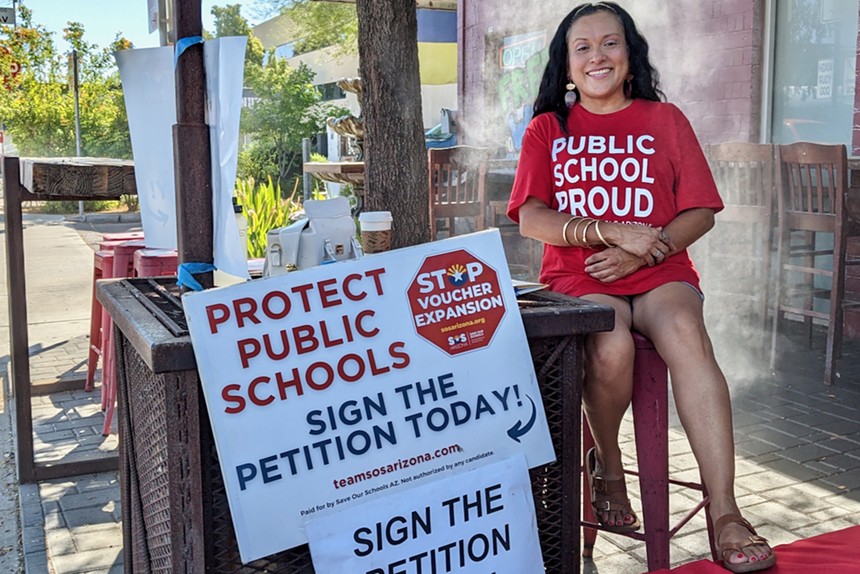
‘Consistently refused to create quality public schools’
Arizona’s initial foray into school choice came in 1994, when the state passed a far-reaching education reform package that authorized charter schools to operate here. Three years later, the state became the first in the U.S. to establish nonprofit school tuition organizations to fund private school scholarships, offering dollar-for-dollar tax credits to donors.
By 2006, the Legislature had created an explicit school voucher option limited to students with disabilities and those in foster care. The Arizona Supreme Court later deemed that program unconstitutional, because it directly funded private, often religious schools.
Policymakers soon changed course, launching the nation’s first “Empowerment Scholarship Account” program in 2011. ESAs, initially available to students with disabilities, similarly diverted state money to public school alternatives, but they circumvented the court’s decision by giving the cash to parents to spend. Republican leaders first expanded program eligibility incrementally, then dramatically.
Today, Arizona has the largest share of charter school students in the country. Its STOs rake in hundreds of millions annually, funneling would-be tax revenue to private schools. And its now-universal voucher program enrolls nearly 75,000 students, to the tune of more than $700 million.
The state also has some of the worst-funded public schools in the U.S., ranking 49th on the U.S. Census Bureau’s most recent Annual Survey of School System Finances.
Even before the state universalized voucher eligibility, Columbia University researchers who analyzed education budgets from 2008 to 2019 found Arizona was one of the few states where public school spending declined even as enrollment increased. Per-pupil public school spending dropped by 5.7% during that period, according to the analysis, while spending on voucher and tax-credit programs climbed by 270%.
“(Arizona) has consistently refused to create quality public schools, and therefore forced people — and I think that's the key, forced people — to make other choices,” said University of South Carolina Professor Derek Black, who specializes in the intersection of constitutional law and public education.
In other words, the harder you make it for public schools to succeed, the easier it is to sell the alternatives. And there are plenty of well-financed conservative groups working to do just that.
Former U.S. Education Secretary Betsy DeVos’ American Federation for Children, the Koch brothers’ Americans for Prosperity and the American Legislative Exchange Council have all doggedly pushed for expansions in vouchers and other school choice programs throughout the country in recent years, using Arizona as a proving ground.
Libertarian think tank the Goldwater Institute, the primary architect of Arizona’s ESA program, has repeatedly said it “won’t stop until parents in every state in the nation are empowered to decide what educational path truly meets their children’s needs,” though it declined to discuss the implications of Project 2025’s voucher proposal with AZCIR.
Framing education as a consumer product rather than a public good, these groups argue families should have the ability to escape subpar, out-of-touch public schools in favor of private or self-directed options that better serve their kids and more closely reflect their values — all on the taxpayer’s dime.
That argument has gained traction amid some families’ frustrations over how public schools navigated the COVID-19 pandemic, as well as ongoing culture wars over issues of race, gender and sexuality. (Heritage Foundation President Kevin Roberts writes in Project 2025’s forward that the “noxious tenets of ‘critical race theory’ and ‘gender ideology’ … poison our children.") But in most cases, it’s Republican lawmakers, not families, who have pushed hardest to make it easier for public dollars to go toward private alternatives.
Every time major voucher expansions have been put to the public, including in Arizona, voters have rejected them.
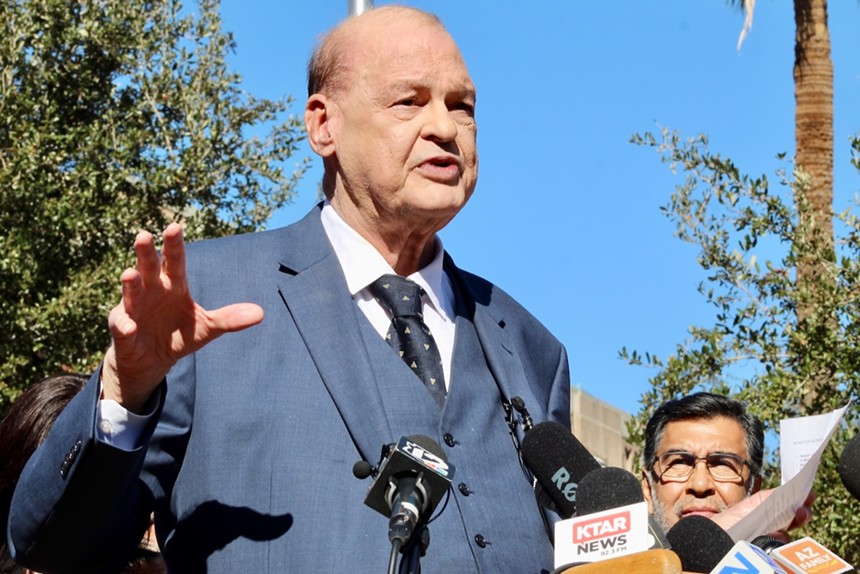
Budgetary strain
Project 2025 paints a rosy picture of an educational marketplace where parents hold the ultimate power to customize their child’s learning experience. As Roberts puts it in his introduction, “Schools serve parents, not the other way around.”
Indeed, parents of some public school students — from those with disabilities who needed special instruction, to those from lower-income families who felt trapped at failing or unsafe schools — have successfully used vouchers to find and afford placements better tailored to their children’s learning styles.
“A family may have three children, two of whom thrive at their neighborhood public school, but one struggles, and the parents choose to get ESA funds to send that child to a school that meets his needs,” Arizona Superintendent of Public Instruction Tom Horne said. “I believe school choice options should be available to parents throughout the country as decided on a state-by-state basis.”
At the end of the day, though, only public schools must be open to all. Private schools can generally pick which students to accept or reject, meaning they ultimately do the choosing, not families.
In Arizona, that has left some parents who’ve pursued vouchers for children with disabilities unable to find spots for them. Those who do secure private school placements give up certain anti-discrimination and disability protections present at public schools.
These considerations apply to the minority of Arizona ESA recipients who’ve left district or charter schools in favor of private schools since the state universalized eligibility. Over the past two school years, more than 60% of ESAs went to students who weren't previously enrolled in public school, state data shows, indicating families are likely using vouchers to subsidize expenses they had formerly covered.
Rather than saving the state money, as school choice advocates claimed ESAs would, both of these shifts have created budgetary strain. School districts, which rely on consistent enrollment for state funding, have seen cash disappear alongside students, even as fixed costs have remained steady. The state, meanwhile, has taken on hundreds of millions in new spending for kids who were already attending private school, a trend that contributed to a $1 billion-plus budget deficit this year.
Under Arizona’s existing laws, it’s almost impossible to see how students who use vouchers for private schools or homeschooling are performing, since they generate very little data. They don’t have to participate in state or national assessments, for instance, and their grades, graduation rates and postsecondary attainment go unreported.
Levin cited a lack of accountability metrics as a key concern if vouchers go national, particularly given the associated price tag. In 2021, National Education Policy Center researchers estimated U.S. education spending would increase by anywhere from $67 billion to $203 billion a year to accommodate universal vouchers, depending on program parameters and enrollment.
Most troubling to experts interviewed by AZCIR, though, were the possible impacts of Project 2025's school choice proposals on student equity.
When the quality and safety of public schools decline, families with the money and resources to leave will often do so. Even with vouchers in play, lower-income families may not be able to fully afford private school tuition, not to mention related costs like transportation and technology.
Further concentrating high-performing, well-resourced students at some schools and lower-performing, lower-income students at others would exacerbate segregation and create a fragmented educational landscape, according to Black, the constitutional law expert. Project 2025’s recommendation to phase out Title I funding, designed to close achievement gaps at poorer schools, would only add to the divide.
Such a fractured system would be at odds with the American tradition of using public schools to bring together children of all backgrounds and produce an informed citizenry, Black said.
“The people who propose these types of things, in my mind, are either highly ignorant of or highly dismissive of a 200-year commitment to public education with the understanding that democracy itself rests upon it,” he said. If Project 2025’s vision is brought to life, “you’ve really got to worry about how America moves forward.”

